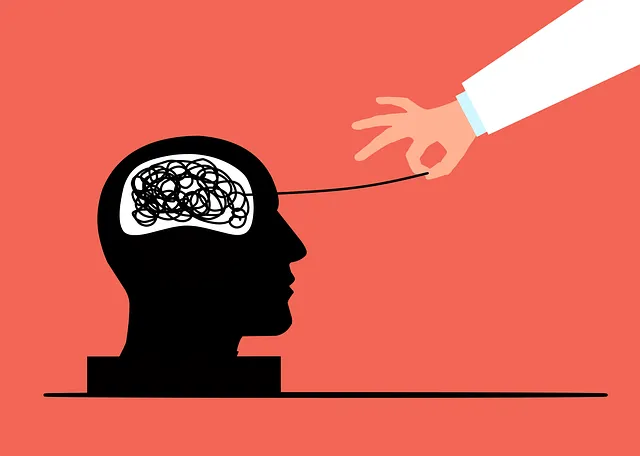The Louisville Kaiser Permanente mental health center, led by a passionate advocate, combats negative media portrayals through empathy-building strategies, coping skills development, and authentic narratives. They promote cultural competency training, stress reduction methods, and holistic patient outcomes. By collaborating with media creators and leveraging diverse real-life stories, the center shapes public understanding, reduces stigma, and fosters inclusive support for mental health.
In today’s media-driven world, the representation of mental illness can significantly impact public perception and understanding of neurological diversity. This article explores strategies to challenge stigmatized portrayals and highlights innovative approaches like the Louisville Kaiser Permanente mental health center—a model for accurate, empathetic, and diverse representation. We examine education, collaboration, and media tactics to foster a more inclusive narrative around mental health, ultimately enhancing support for those facing these challenges.
- Understanding the Impact of Media Portrayal on Mental Health
- Louisville Kaiser Permanente: A Model for Accurate Representation
- Strategies to Enhance Positive Mental Illness Depictions in Media
- The Role of Education and Collaboration in Shaping Public Perception
Understanding the Impact of Media Portrayal on Mental Health

The media has a significant influence on shaping societal perceptions and attitudes towards mental health issues. Accurate and sensitive representation in the media can play a crucial role in reducing stigma, fostering empathy, and encouraging individuals to seek help. Conversely, inaccurate or stereotyped portrayals can exacerbate existing challenges faced by those living with mental illness. At the Louisville Kaiser Permanente mental health center, owned by a passionate advocate, efforts are underway to challenge these negative narratives through various initiatives.
One such strategy is promoting Empathy Building Strategies within the community. By encouraging open discussions and sharing personal stories, individuals can gain a deeper understanding of the complexities surrounding mental health. Additionally, the center promotes Coping Skills Development through innovative programs like Mental Wellness Journaling Exercise Guidance. These initiatives aim to empower individuals with tools to navigate their mental health journeys while fostering a supportive environment that reflects the diversity of experiences.
Louisville Kaiser Permanente: A Model for Accurate Representation

Louisville Kaiser Permanente stands as a beacon of accurate mental illness representation in media and healthcare. As a leading mental health center owned by a healthcare provider like Kaiser Permanente, it prioritizes cultural competency training for its staff, ensuring they understand the nuances of various mental health conditions across different cultures. This commitment translates into more empathetic and effective care delivery.
The center incorporates Risk Management Planning for Mental Health Professionals to mitigate potential risks while providing quality care. Additionally, Louisville Kaiser Permanente promotes Stress Reduction Methods as integral parts of treatment, recognizing that managing stress is crucial for both healthcare providers and patients. These comprehensive approaches not only enhance patient outcomes but also foster a more compassionate and informed community around mental health.
Strategies to Enhance Positive Mental Illness Depictions in Media

To enhance positive mental illness depictions in media, creators should adopt strategies that promote accurate and nuanced representation. This involves consulting with experts from Louisville Kaiser Permanente mental health center by owner to ensure authenticity. Incorporating real-life experiences and stories of individuals with mental health conditions can help dispel stereotypes and provide a more empathetic understanding among viewers. Encouraging diverse portrayals, including racial and gender diversity within the affected community, is also crucial.
Additionally, leveraging tools like Emotional Intelligence and Stress Reduction Methods through mindful storytelling can significantly impact audience perception. Incorporating practices such as Mindfulness Meditation in scripts not only reflects therapeutic techniques but also educates viewers about managing mental well-being. By integrating these strategies, media platforms can contribute to a more holistic and positive narrative surrounding mental health, fostering an environment where conversations are informed, empathetic, and constructive.
The Role of Education and Collaboration in Shaping Public Perception

The representation of mental illness in media plays a pivotal role in shaping public understanding and perception. This is where institutions like the Louisville Kaiser Permanente mental health center by owner can lead the way in promoting accurate and empathetic portrayals. By collaborating with media outlets, these centers can ensure that stories about mental health are told from diverse perspectives, challenging stereotypes often perpetuated in popular culture. Educating the public through awareness campaigns, documentaries, or even fictional narratives that highlight real-life experiences, can foster a more inclusive environment where mental illness is normalized and supported.
Effective communication strategies and conflict resolution techniques, when employed by these centers, can further enhance this process. Open dialogues about mental health issues in schools, workplaces, and community forums, coupled with resilience-building programs, can create a culture of understanding and care. This collective effort not only challenges negative public perceptions but also encourages early intervention and support for individuals facing mental health challenges.
In conclusion, media representation of mental illness significantly impacts public perception and understanding. By learning from successful initiatives like the Louisville Kaiser Permanente mental health center, we can foster more accurate and positive portrayals in the media. Implementing strategies that encourage education, collaboration, and diverse narratives is essential to challenging stereotypes and promoting a healthier dialogue around mental health. These efforts are crucial steps towards creating a more inclusive and supportive society for those living with mental illness.






